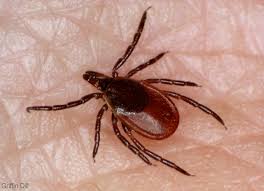AuthorLyn Chimera is a Master Gardener, consultant and lecturer. Archives
May 2023
Categories |
Back to Blog
Don't Get Ticked4/12/2019  I recently attended “Don’t Get Ticked” an informational program about ticks, conducted by Lynn Braband who heads the NYSIPM (Integrated Pest Management) program from Cornell. He covered the myths and facts. It was fascinating and scary at the same time. I for one don’t take tick protection seriously enough but will from now on. Lyme is now the most common vector born disease in the US so it needs to be taken seriously. Ticks have 8 legs so are not bugs but related to spiders and mites. There are 3 types of ticks in our area:
All these ticks spread a variety of diseases but it is just the deer tick that carries Lyme. Ticks hitch a ride on people and animals through an “ambush” technique. They can’t jump, fly or drop from trees so rely on grabbing on to you as you pass by. A tick will crawl to the end of a leaf or blade of grass from ground level to 1 ½ feet off the ground, hold on with their back legs and reach forward with their front 2 elongated legs to grab a hold on whatever passes by. Walking in the middle of paths so you don’t brush up against vegetation is a good way to avoid these hitch hikers. Long pants tucked into socks is another good method. Lynn suggested putting all clothing in a dryer on high as soon as you come in. The heat will kill the ticks. Spraying with DEET is most effective of the insecticides for ticks. He also recommended taking a shower within ½ hr. after coming in. This can possibly wash off ticks as well as give you the opportunity to check yourself. If you do get a tick on you the most important thing about removing it is NOT to squeeze the body or head. That just forces more of their fluids into you. Use a very thin tweezer and place it between the head and your skin. Pull gently. There is also a tick removal device available at drugstores. If you want to check the tick for Lime disease put in a container in the freezer or drop it in a container with alcohol or hand sanitizer to kill it. Then take the tick to your doctor or the County Health Dept. Some interesting facts:
An outstanding website with all the information on ticks, their life cycle and prevention is: https://nysipm.cornell.edu/whats-bugging-you/ticks/
0 Comments
Read More
|

 RSS Feed
RSS Feed
